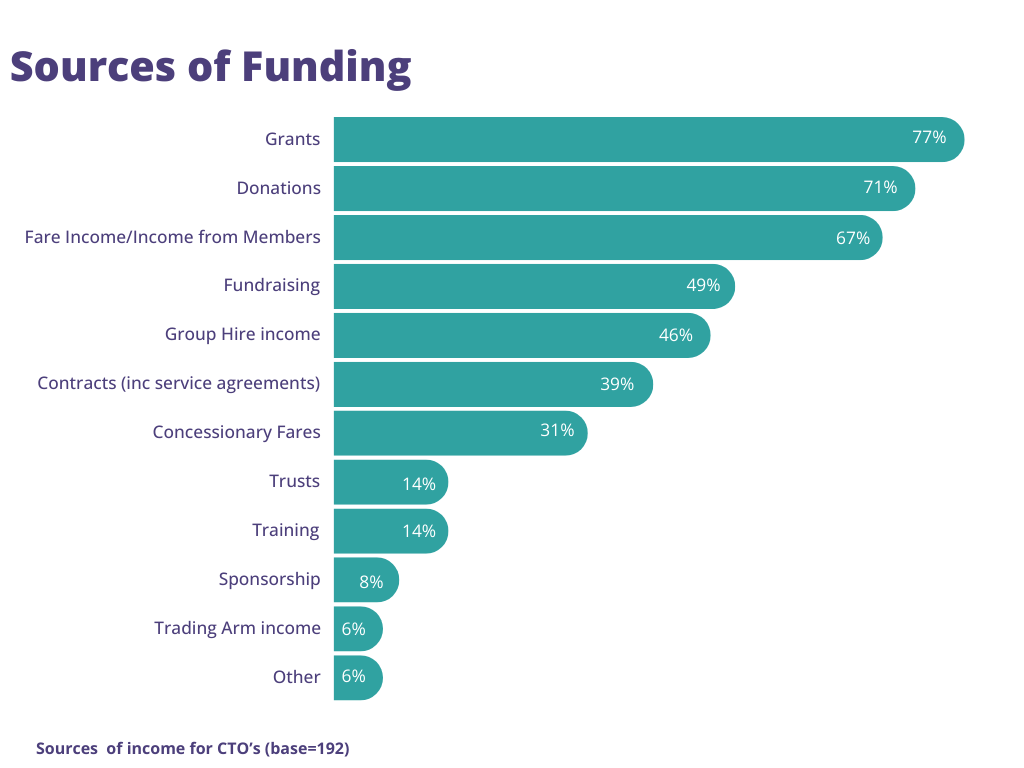
Investing in Community Solutions: Spotlight on West Norfolk Community Transport
Fair, consistent funding for Community Transport is vital for the long-term future of the sector and our Mapping England has revealed a mixed picture of income sources for Community Transport Operators.
77% of operators receive grant income and grants are in the 3 highest sources of income for 81% of these organisations. Grant income is therefore critical to operators, but it is time-limited and reapplying or finding new grants is a major drain on staff resources.

62% of respondents were receiving funds from local authorities, and in a separate poll, 60% of those receiving LA funding were expecting or have received notification of an actual or potential cut.
Only 11% of organisations were receiving funding from Health authorities despite 68% of Community Transport Operators taking passengers to Health services.
Moreover, primary purpose Community Transport Operators were receiving five different sources of funding on average, which spreads risk, but also emphasises the fractured nature of Community Transport funding.
Funding and finance issues were the 2nd highest priority for Community Transport Operators in the coming year:
“(We have) concerns about Local Authority funding continuing and having to apply for grants if this is cut.”
“(We have) increasing running costs and rising wage bills, whilst trying to secure funding. Increasing demand on services, with a higher volume of client and professional referrals”
One of the key sources of income for Community Transport, besides grants, were contracts. In the Mapping England response, 39% of organisations held contracts or service level agreements. Contracts were the largest source of income of 56% and in the top three sources of income for 84% of Community Transport Operators receiving this type of income.
West Norfolk Community Transport have run contract services for more than 15 years, including contracts for schools, Norfolk County Council and other private organisations. After COVID, a slew of local government cuts to their funding impacted their service capacity. They went from having 7 full-time minibuses operating their dial-a-ride in Kings Lynn, to 2 full-time and 2 part-time buses. Financially, they were able to keep running services at reduced capacity because their contract work.
Natasha from West Norfolk Community Transport outlines the key benefits of contracting for organisation, and the main learning they have found through their experience.
Contract work is an important source of income for some Community Transport Operators West Norfolk community transport have shown how it is possible to run contracts and continue to support the vital services they run for their community.
